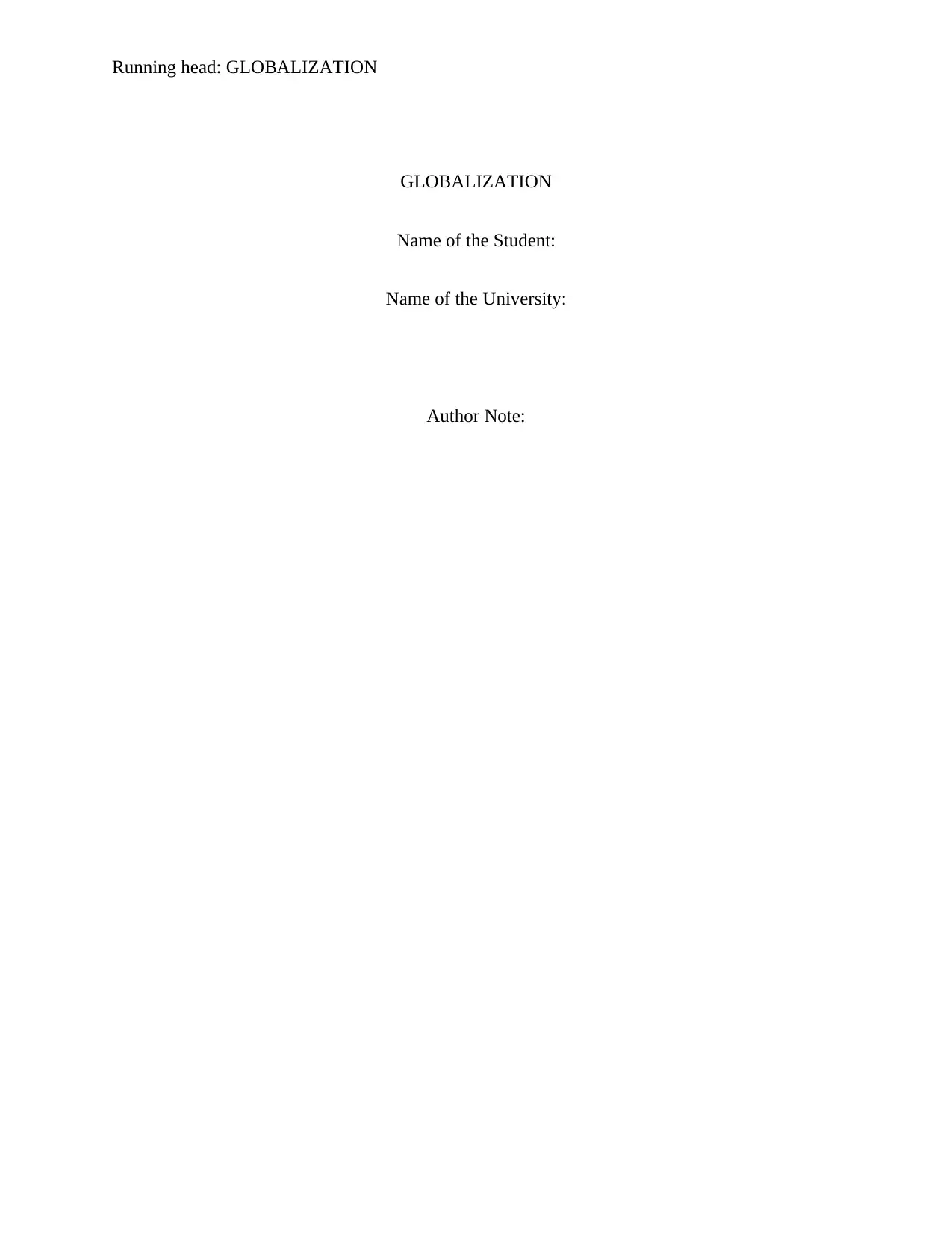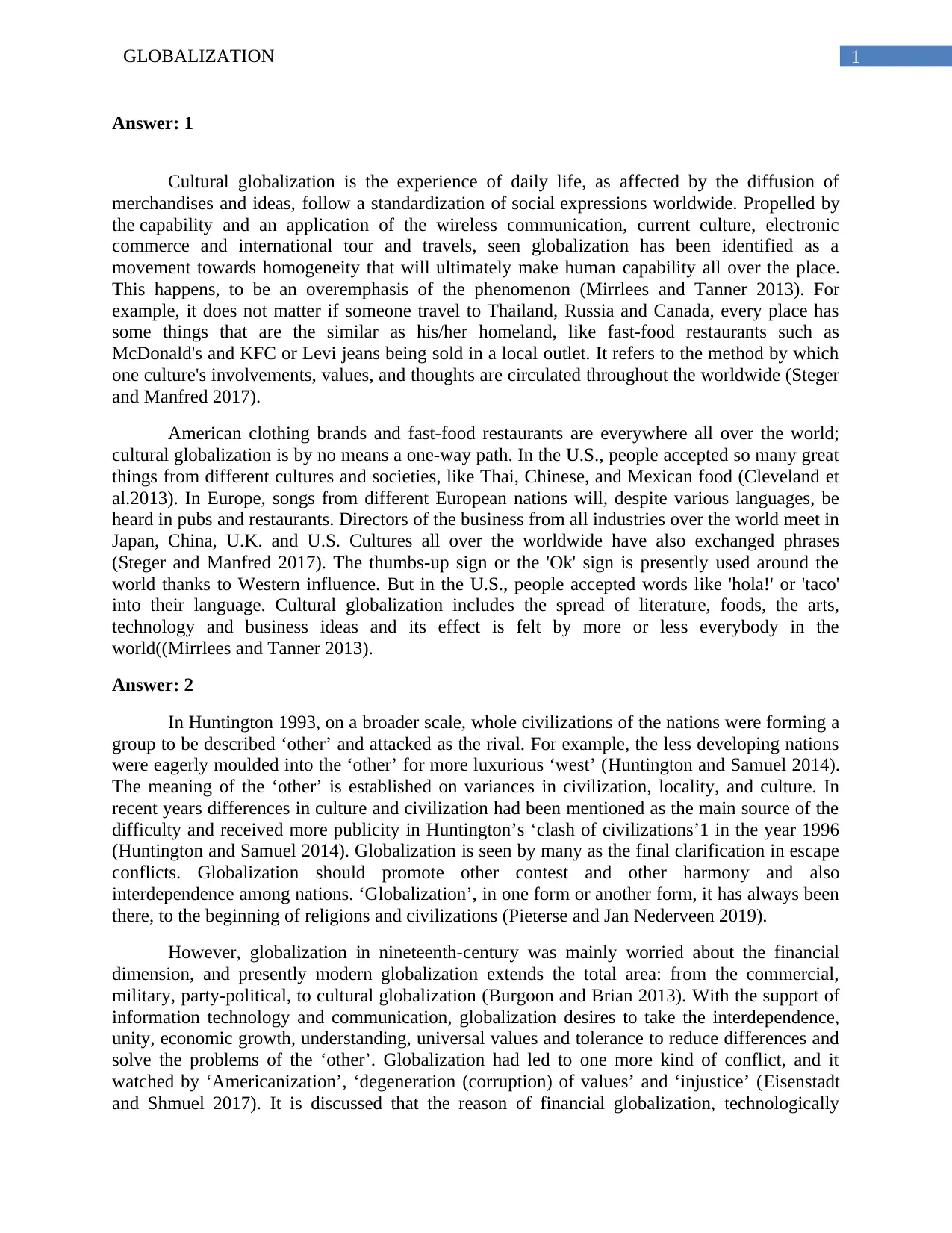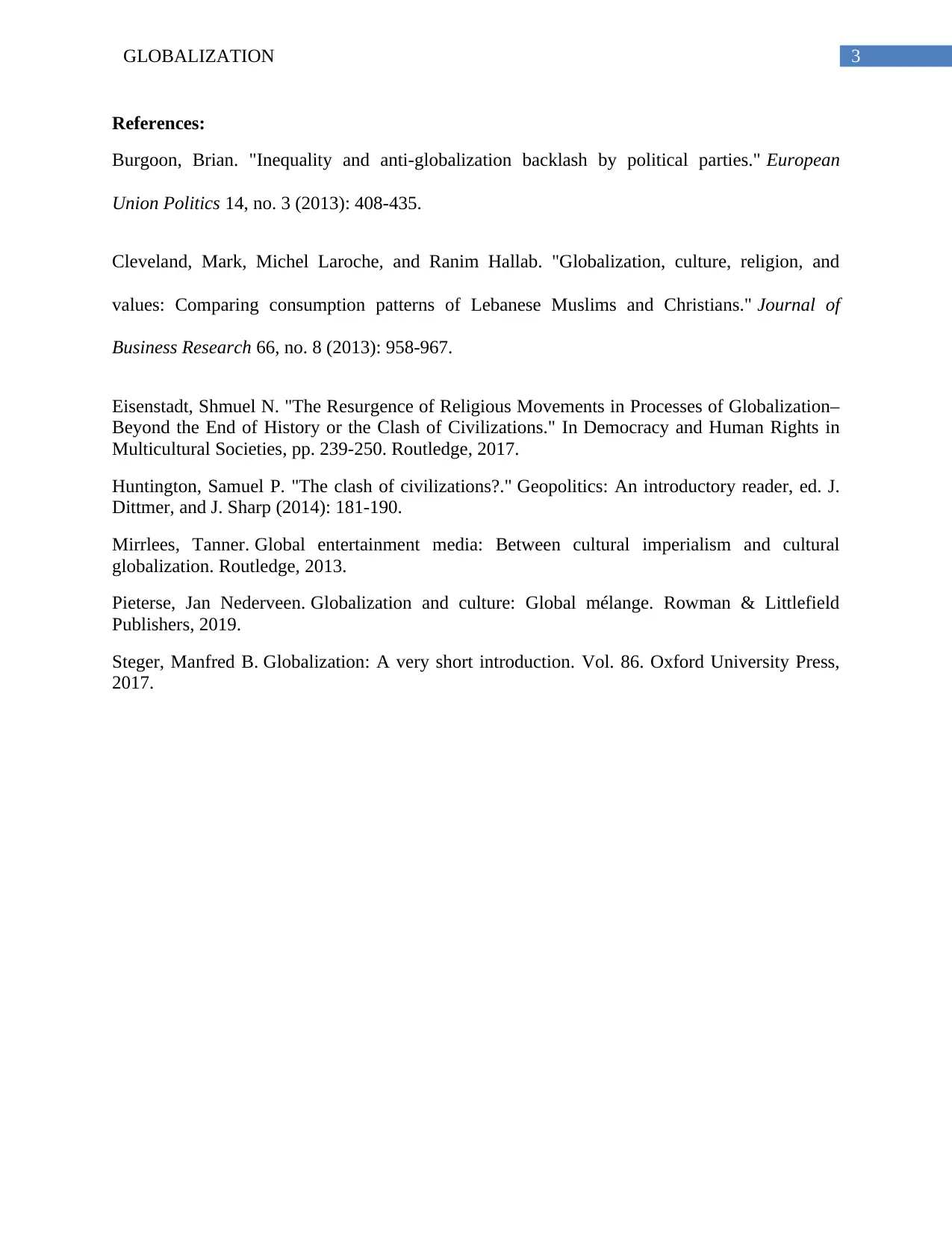Globalization Essay: Cultural Globalization, Conflicts, and Impacts
VerifiedAdded on 2022/12/21
|4
|977
|1
Essay
AI Summary
This essay delves into the multifaceted impacts of globalization, exploring its effects on cultural exchange and the potential for conflicts between civilizations. It examines how cultural globalization, driven by advancements in communication and technology, leads to the spread of ideas, values, and products across the globe, creating a sense of homogeneity while also fostering cultural exchange. The essay discusses the concept of the 'other' and the clash of civilizations, highlighting how differences in culture and civilization can become sources of conflict. It also considers the economic dimensions of globalization, addressing the widening financial gap between developed and developing nations, and the rise of issues such as 'Americanization' and 'injustice'. The essay references various scholarly works to support its arguments, providing a comprehensive overview of the complex effects of globalization on societies worldwide.
1 out of 4





![[object Object]](/_next/static/media/star-bottom.7253800d.svg)